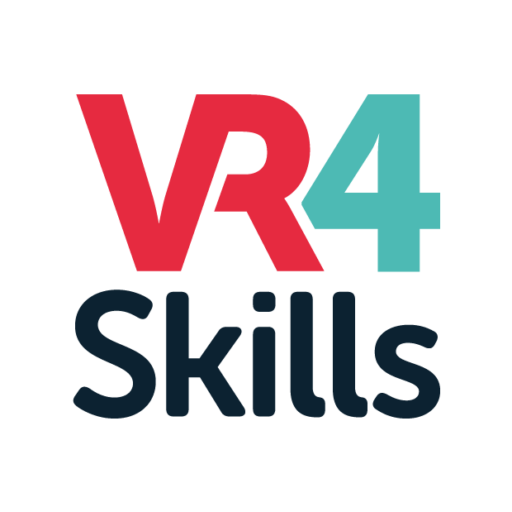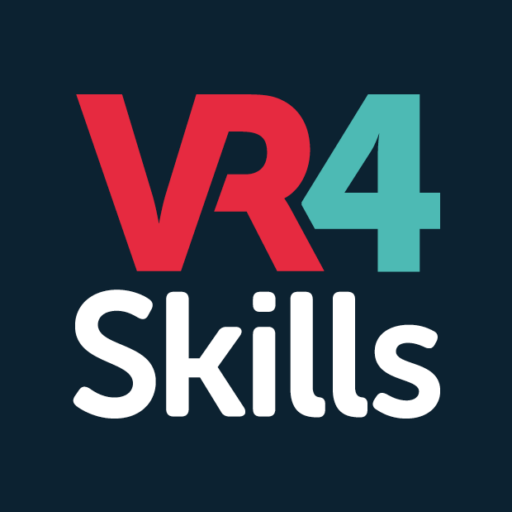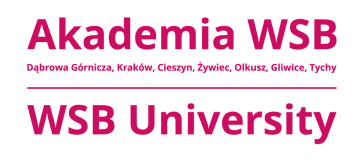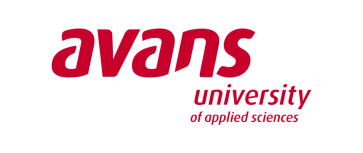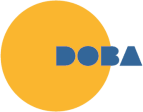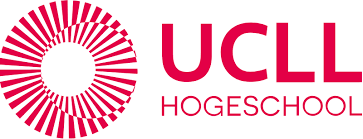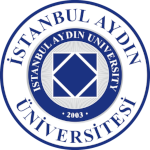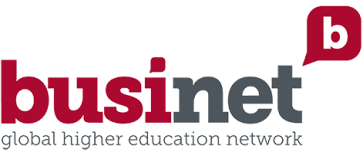Project Partners

About our Partners
WSB University
At WSB University, we proudly take the lead as the primary drivers of the VR4Skills project, spearheading innovative advancements in virtual reality technology for skill development.
WSB University has been operating on the educational market for 25 years running I, II and III cycle education, post graduate studies and other forms of non-formal education (business training) on 15 different fields of study which are conducted in 3 languages: Polish, English and Russian. Center of Technologies Transfer, Center of Business Engineering, Center of Economic Cooperation and Center of Modern Methods and Education Technology function at the University. WSBU employs 1200 academic staff and 270 of non-academic, at present it educates 12000 students, out of which 2200 are international students of over 40 different nationalities. In the framework of various forms of non-formal training, it educates 6000 learners.
Apart from didactic activities, WSBU implements academic research and conducts actions activating local community. WSBU cooperates with many academic and research centres in Poland and abroad. Therefore didactic activities are more innovative and research potential is substantial. WSBU implements other forms of non-formal education focusing on the increase of the region, companies and students competitiveness on the international labour market-WSB Science Academy, Science Festivals, School of Leaders, Youth Academy of Media (MAM), E-Teacher Academy.
Additionally, WSB focuses on innovation in the learning process, which is carried out, among others, through e-learning activities, by the use of specially configured e-learning platform. Centre for Modern Methods and Educational Technology monitors the operation of e-learning platform e-learning courses. 3300 people are covered by distance learning, including students, entrepreneurs and international students.
At WSB, pro-quality attitude is dominated, therefore, a lot of activities for the development of infrastructure and permanent improvement of the education process have been undertaken. WSBU has an Institutional Internal Quality Assurance System which was introduced in 2008. It has obtained numerous distinguished assessments from the most important institutional accreditation of the National Accreditation Commission. WSB University holds international accreditations by CEEMAN, KAUT, HR Excellence in Research.
WSB implements modern standards in the scope of quality of education what is confirmed by the following distinguished assessments awarded by: Polish Accreditation Commission, the accreditation of Management major, awarded by the Foundation of Promotion and Accreditation of Economic Majors. WSBU has obtained the pro-quality award from the Ministry of Science and Higher Education. The award is granted for the best educational programs and for implementing the innovative systems of the education quality. WSB has one of the highest scientific category and is a leader in non-formal education in the southern Polish. Being in close collaboration with many educational establishments in the country and abroad, WSBU presents the high level of educational and innovative service and the potential of scientific work is getting higher and higher. Collaboration with foreign universities from all over the world includes academic exchange, joint educational programs, double degree programs and joint research. WSB has been working with the program LLP/Erasmus+ since 2001. WSB is a member of the European Universities Association, Businet, EFMD, EAEC, CEEMAN, EAIE and Magna Charta.
At the regional and state levels, WSBU closely cooperates with business, public administration institutions (institutions of local government, government and resort), non-government organizations and social and economic institutions. WSBU is highly experienced in building effective relations with the social economic environment. It is confirmed by the University’s participation in numerous organizations, associations and influential Polish and regional bodies.
Avans University of Applied Sciences
Avans University of Applied Sciences (Avans) is a large multi-stream comprehensive higher education institute for higher education in the Netherlands with >2500 employees and >30,000 students in 20 faculties including 54 programmes in 8 sectors. For a number of years, Avans has been one of the top three universities of applied sciences in the Netherlands Avans UAS has three campuses, in Breda, Den Bosch and Tilburg (NL). Avans offers 4-year 240 ECTS bachelor programmes in for example Marketing, Finance, HRM, Small Business, International Business, ICT, Engineering, Bio Based Technology, and Social Studies. Dutch higher education is being monitored by the governmental council on higher education and is accredited every 6 years by the DutchFlanders accreditation organization (NVAO). The institute, as partner in knowledge and practice-based research, is strongly regionally connected and values a strong relationships with regional business, enterprises and organisations.
Our educational philosophy is that we challenge our students and staff to maximise their performance and develop into globally competent professionals who sustainably contribute to the complexity of the society in which they participate. Students who structurally contribute to developing and sharing regional specialist knowledge and make conscious choices concerning people, planet and profit. Our students are recognised as highly skilled, responsible, critical and reflective professionals. They are partners who collaborate multidisciplinary on creative solutions of value for society.
Research at Avans UAS involves 6 Centers of Expertise (CoE) with 29 research groups. On the one hand, research at Avans is all about responding to knowledge-related questions from the market and society. On the other, it concerns modernising education, upgrading (non)-teaching staff and improving the valorisation and distribution of knowledge.
DOBA Business School
DOBA Faculty of Applied Business and Social Studies Maribor (DOBA) is an independent private HE institution from Slovenia established in 2003. It is a modern business school dedicated to the development of innovative individuals and eLearning. It offers 11 study programmes on bachelor, masters, and doctoral level in the areas of Marketing, Business and Management, Social Services, and Lifelong Learning and Applied Psychology. The programmes are offered in four languages and are delivered in an online study mode. With an annual intake of about 1500 students, DOBA is the largest online education provider in Southeast Europe. It has 18 staff members, 87 teachers, and 119 online mentors.
DOBA holds the honour of being the first – and for now the only – Higher Education Institution in Southeastern Europe to receive the UNIQUe international accreditation for quality in e-learning, which is awarded by EFQUEL (European Foundation for Quality in e-Learning). Student holistic support model was recognized as one of DOBA’s main strengths. The HEI-UP project of DOBA (funded by Lifelong Learning Platform) on improving HEI business process based on the good practices from companies won a special award for the most innovative related project at the BPM EE Summit. DOBA also obtained the EOCCS (Online Course Certification System) certification for its high-quality implementation of online learning. The certification is awarded by the most important European association of business schools, EFMD (European Foundation for Management Development).
E-learning is an integral part of the institutional strategy and is incorporated into defined main strategic aims. The e-Learning strategy at DOBA aims to enhance the development and virtualisation of distance learning to enable better access to and flexibility of study programs via the use of innovative ICT based pedagogical approaches, new media, and technologies to support the implementation of distance learning and blended learning for the enrichment of the student learning experience.
DOBA was one of the pioneers in implementing virtual mobility in its programmes. Virtual mobility is an alternative for DOBA’s students to get an international learning experience for those who cannot participate in physical mobility programmes due to social, financial, or other reasons.
In 2011, the Advisory Council for Development of Distance Learning at DOBA was established, joining Slovenian and foreign experts in the field of pedagogy, information technology, and e-learning. The project is in line with the guidance for further development of e-learning initiatives at DOBA.
DOBA is an active member of international associations which are involved in the development of online studies. Its faculty members and other staff members actively participate at international conferences and publish papers in different journals (e.g. EDEN conference, Conference for Academic Teaching Excellence, Businet network conference, etc.)
UC LEUVEN
Vzw UC Leuven is an HEI in Flanders, collaborating under the name UC Leuven-Limburg (UCLL) with vzw UC Limburg. UCLL is renowned for the high quality of its teaching, research and regional development. More than 30 professional bachelor (EQF 6) and 30 lifelong learning study programmes are offered in various study field areas: Education, Health Care, Applied Social Studies, Applied Engineering & Technology, and Business Management. Each year, about 14000 students are enrolled in UCLL. Moreover, about 15000 professionals follow a training, seminar or workshop at UCLL.
UCLL’s strong commitment to research ensures state-of-the-art study programmes and trainings for these students and professionals. Research at UCLL is unquestionably practice-oriented. Together with other regional and international knowledge institutions, companies and organizations, the government and funding agencies, UCLL generates new, applied knowledge through a wide range of (international) research projects and offers this knowledge via training and advice. UCLL also cooperates with actors outside the academic world to provide research and services tailored to their needs. The following elements are central to our research policy:
– Demand-driven research & training: We handle questions from the field as well as policy-oriented demands. We are pioneers in questions that still have to arise in the professional field. We acquire knowledge and insights that lead to new products, methods and processes that contribute to solving real-life problems.
– Multidisciplinarity: Through complementary knowledge and multidisciplinary collaborations in and across our research centres, we offer solutions for complex issues.
– Regional added value: The interconnectivity of the institution within the Provinces of Flemish-Brabant and Limburg is established via close contacts with local governments and representative bodies. We interact with organizations, companies, and entrepreneurs in both regions.
– Internationalization: Crossing borders and sharing good practices, transferring knowledge and thinking global is part of the UCLL DNA. UCLL is and has been involved in a variety of European projects: Erasmus+, H2020, and other EU programmes (ERDF, REC, AMIF, Interreg, …). UCLL is a member of educational networks across the globe and strongly collaborates with a broad range of European and international stakeholders.
– Intertwining of education and research: A quarter of our staff is involved in research projects and 80% of the researchers has teaching assignments. New knowledge leads to innovation of the curriculum and contributes to the professionalisation of employees, students and the professional field.
UCLL hosts 8 research centres: Art of Teaching, Education & Development, Health Innovation, Inclusive Society, Resilient People, Smart Organisations, Digital Solutions, and Sustainable Resources.
This project proposal will be issued by UCLL Research&Expertise centre Education & Development (Ed&Dev).
Ed&Dev focusses on development, transition, revolution, renewal, growth and innovation in education, all words to describe a movement, a movement from something to something else, something new, something better. That is what we are constantly trying to do in education and training: to support learners – toddlers, children, young people and adults – from not yet knowing to being able to know to knowing. That development process presupposes school leaders and teachers – pre-school teachers, teachers, teacher educators, coaches, directors, education managers and education and school support staff – who can themselves move from something to something new in that movement.
To this end, we research and design questions and answers that identify three major age/organisational target groups within education: Early childhood education, Primary / secondary education, and Higher Education, as well as three substantive cores: change processes, the development and evaluation of vision and policy on transversal competences, and the development of education professionals. Within Ed&Dev, we assume that development processes are pre-eminently research-based. Moreover, we prefer to focus on projects from a collaborative position: pupils-adolescents but also nursery school teachers and school leaders assume as much ownership and co-responsibility for research as possible. Where possible we do research with them and for them, not about them. In addition, we want to further deepen the detachment, systematics and urgency of practice-based scientific research. By deploying creative, mostly qualitative research methods (such as action research, photojournalism, development research, deliberative research, video analysis, etc.), we not only try to better understand the complexity of teaching and learning, but we also make results public and open up a societal deliberation.
The Education & Development research centre is run by Ruth Wouters. Ruth is a senior expert in educational sciences. She is head of expertise centre, a +20 FTE research group dedicated to transversal questions of innovation at schools. Her own research focuses on educational policy, innovative educational organisational structures and qualification initiatives. She is an expert in participative/collaborative qualitative research in education using (among others) deliberative methods. For more than 15 years, she has participated and coordinated several national and international projects.
ISTANBUL AYDIN UNIVERSITY
IAU is a non-profit, state-recognized endowment university established in 2003. IAU has 13 Faculties, School of Applied Sciences, School of Foreign Languages, 3 Vocational Schools of Higher Education, a Graduate Institute offering masters and doctorate programs and 30+ Applied Research Centers. IAU is quite a comprehensive university offering academic programs from pre-bachelor to doctorate level in many disciplines such as Architecture, Arts and Sciences, Business, Communications, Dentistry, Education, Engineering, Fine Arts, Health Sciences, Law, Medicine, Sports.
IAU has grown rapidly in recent years, with commitment to all dimensions of higher education, teaching, applied research and service to society. IAU’s wide selection of academic programs, unique combination of industry links and outstanding campus infrastructure make it one of the largest and preferred foundation universities in Turkey. Currently IAU has 40,000 students, of which 6,000 are international. IAU has 608 full-time academic staff and 650 administrative staff.
IAU has always put a strong emphasis on internationalization. It has a dedicated Directorate of International Relations (DIR) under a vice-rector for international affairs. DIR runs Erasmus program, bilateral exchanges, short-term programs, marketing, recruitment and admissions of full-time international students, support services and Turkish language courses. IAU is also a partner to international university networks such as EURAS- Eurasian Universities Union and UNIMED- Mediterranean Universities Union and BUSINET. IAU is now aiming to increase the number of internationally funded projects.
IAU has in recent years focused on quality assurance. While academic programs are undergoing national/ international quality accreditations, at the institutional level, IAU has completed European University Association’s Institutional Evaluation Program and Turkish Higher Education Quality Council’s Institutional Accreditation Program. IAU has also been awarded Ministry of Trade’s prestigious Turquality support for international branding. Professional development of its academic and administrative staff is therefore very important for IAU in meeting these accreditation requirements, as well as its international outlook.
Businet
Businet is a non profit, subscription funded, member organisation of educational institutes. Members deliver business and business related studies as a part of their offer. There are currently 129 members based in 36 countries.
The organisation facilitates networking between the members to help achieve its main goal, which is to provide opportunities for the member institutes, for their staff and for their students. All partners educational institutes involved in this project are members of this network. As part of the activities of the network a news update is published every 2 weeks, and which has over 400 subscribers in the 100+ institutes. The news update is used to distribute information about the events, activities and studies organised by members, or the network. The network hosts an annual conference event (normally held in November – 3 days in duration), which was attended by 230 delegates in 2021 (online) and 167 in March 2022 , and a smaller Spring Workshop which is held each Spring.
The organisaton has a series of Special Interest working groups. I@H was introduced a number of years ago and it is in that group that this project developed. The news update will be used as a dissemination tool for this project. Updates will also be delivered in the format of good practice workshops at conference events. In all, twenty one good practice workshops disseminating information about this project and other examples of good practice, will be hosted during, and directly after, the project period.
The project will also feature on the Businet website and the website will also be used as a dissemination tool. Disseminating information to members is one of the core activities work of the network, as the one of the underpinning aims of Businet is to share good practice. Therefore one of the roles of Businet within the project will be to co-ordinate the dissemination of information to project members and to the members of Businet. It will also encourage and monitor the dissemination activities of the project members in their own environments. An additional role will be to coordinate external evaluation of the project. To do this Businet will seek the services of an external consultant, that has wide ranging experience of current Erasmus projects and their predecessors. They will provide feedback on the activities of the project team and the adherence to the work plan and comment on the achievement (or non-achievement) of the established goals of the project at 2 points during the project period. The recommendations provided will be taken on board by the project members.
The network has no fulltime staff. The work of the network is co-ordinated by the General Manager, who receives an honorarium. The work of the network is overseen and facilitated by an elected Management Board of 5. All are active in the member institutes. The network also has a financial manager and the finances of the network are externally audited. The network had net assets of approximately €167k at the end of the last fiscal period (31 July 2021). The network was founded in 1987.
